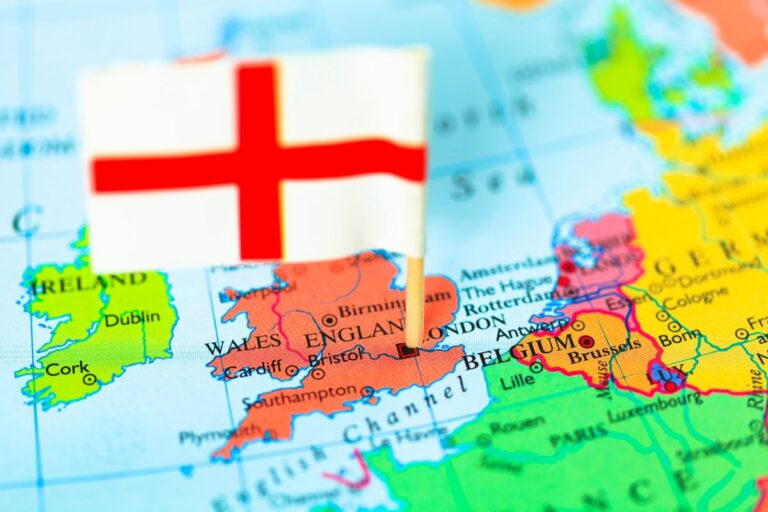Differences Between Encyclopedia and Dictionary
Dictionaries and encyclopedias have lost a bit of their appeal over the last decades, but they are still an important part of our culture, to pass on our knowledge to future generations. But do you know the real differences between a dictionary and an encyclopedia?
Overall, dictionary and encyclopedia have a different purpose. While a dictionary will generally include only word definitions or translations, an encyclopedia aim to be knowledgeable about many aspects of a subject (history, places, people, etc.).
This is obviously the short answer to your question, keep reading to get more details and examples.
Encyclopedias and dictionaries have a different purpose
If there was only one thing that encyclopedias and dictionaries shared, it would be that they are both compendiums of useful information that are either more general or more detailed according to the purpose of their compilation.
And even with that, they differ on which meaning of “compendium” they are! If they could talk, a dictionary would say it’s a systematic collection of vocabulary, while an encyclopedia would probably boast of being a collection of detailed summarized information about a greater number of subjects.
When dictionaries were “invented,” – though I would just say “put together,” – they were arranged more like today’s encyclopedias, by subject or theme, instead of alphabetically. In fact, there are works labeled as “dictionaries,” that are more like encyclopedias such as:
- Black’s Law Dictionary
- Dictionary of American Navy Fighting Ships
- And the Dictionary of the Middle Ages.

Dictionaries will always have language as the focus, but they can have more than one purpose concerning languages. I know I used a dictionary in school to double-check my spelling (man that makes me sound old), which must have been a popular reason because, consequently, that has become a primary purpose of dictionary software today in programs like Grammarly.
But dictionaries can also be compiled for purposes like comparing two languages with each other, to explain the meaning of words in their origin and/or as they are used today, or even to find words to rhyme with a chosen word.
Unlike dictionaries, encyclopedias really only have one true purpose: to be reference works (work designed to be used as a helpful reference, or source of information) providing various summaries of knowledge in multiple facets of topics and subjects, not only the language(s) of those subjects.
However, this purpose will shift a bit depending on the level of detail and number of subjects an encyclopedia was made for.
Encyclopedias and dictionaries have various types
Type and purpose kind of go hand-in-hand because based on what the purpose of the compiled work is, you will have your resulting type. Since both dictionaries and encyclopedias have different purposes, they both have various types that will focus on relevant information to their individual purposes.
We tend to think that all dictionaries are the same, but one dictionary may explain the differences of various strokes added to a central or basic part of a word in languages that use pictures, while another focuses on the grammatical correctness of the words it lists.
There are actually 10 different types of dictionaries! You’ve got:
- Bilingual
- Defining
- Electronic
- Encyclopedia
- General
- Online
- Phonetic
- Reverse
- Rhyming
- Specialized
All of which are useful for various people. It’s easy to see a musician using a rhyming dictionary, a traveler using a bilingual one, and a student relying on the general but varied topics of the encyclopedic dictionaries. Reverse dictionaries are pretty easy. Instead of looking up a word to see its definition, you’re using your desired definition to look up the word that fits it best.

In regard to types, encyclopedias have a variety too, though not as many types as dictionaries. Encyclopedia types include,
- Crowdsourced
- Electronic
- General
- Subject-specific
The only one that really needs explanation is “crowdsourced” encyclopedias. When an encyclopedia is crowdsourced, large groups of people are enlisted or asked to contribute information and/or their inputs to the work in return for payment or nothing. These encyclopedias aren’t necessarily compiled and written by experts.
Compilation: Dictionary vs Encyclopedia
When dictionaries and encyclopedias are compiled, they can often both be arranged by subject or alphabetically according to their type.
For instance, subject-specific dictionaries and encyclopedias are most likely going to be arranged according to specific topics relevant to their specific subject. A subject-specific encyclopedia might list the different cultural aspects of a specific nation, while a subject-specific dictionary may focus on only idioms or slang terms.
The most common dictionaries used are defining dictionaries. When they are compiled, each word will have its corresponding definition(s), common and uncommon usages, pronunciation, and etymologies elaborated slightly, underneath it. If a defining dictionary is especially ambitious, it might even have translations and origins of each word.
Dictionaries have their information compiled into double columns and are designed to explore the interrelationships with its data. The best example of this is with the bilingual dictionaries that have each language in their own columns and show the relationship of the words in one language with words of similar meaning in the other. The funny thing with dictionaries is that, once compiled, they are considered subsections of encyclopedias because they are often included in them
Meanwhile, encyclopedias typically aim to be knowledgeable about many aspects of a subject. The information gathered for an encyclopedia concerning its intended subjects will focus on various facets of the subject, and so, will cover important peoples or persons, events, geographic locations, places/buildings within said locations, and histories.
When encyclopedias are compiled, they are always in the form of a series of articles, instead of sometimes like in dictionaries, and are longer and more detailed than any articles found in dictionaries. Finally, just as dictionaries are considered a subsection of encyclopedias, encyclopedias are also interrelated with dictionaries by relying on them as internal references.
Origins of dictionaries and encyclopedia
Both dictionaries and encyclopedias are old works. The knowledge compiled in them change almost every year, but they both originated long before modern day.
Dictionaries predate encyclopedias. The earliest dictionaries date back to 2000 B.C. and written in order to explain words that were used in religious documents instead of being reference works that compiled all of the words in circulation in their area.
When dictionaries were eventually written in English, they were more or less bilingual dictionaries that explained Latin terms.
The origin of encyclopedias varies based on who considers what works as encyclopedias. Ultimately, it seems the works of Marcus Terentius Varro (116 B.C. – 27 B.C.) are regarded as the early model for western encyclopedias as we know them today.
FAQs: Encyclopedia vs Dictionary
What is the Difference Between Wikipedia and an Encyclopedia?
Encyclopedias are compiled strictly by experts while Wikipedia is a crowdsourced type of encyclopedia where everyone online can contribute to the Wikipedia articles.
How are Dictionaries and Encyclopedias Alike?
Both dictionaries and encyclopedias can be narrow in their focus or more general and varied. They are both usually arranged alphabetically and offer descriptions of their subjects, but that is the extent of their similarities. Finally, both of them can be in sets or be stand-alone works.
What’s the Difference Between a Thesaurus, Dictionary, and Encyclopedia?
Encyclopedias are large compendiums of knowledge of various aspects on a number of subjects, dictionaries focus on language in one or a variety of subjects/cultures, and thesaurus’ are a sub-genre of dictionaries that list words in groups of synonyms and antonyms. In other words, words that have similar meanings and words with opposite meanings.
Comparison table: Encyclopedia vs Dictionary
| Encyclopedia | Dictionary | |
| Purpose | Reference work summarizing the current knowledge of various global fields and disciplines. | Reference work for the understanding of languages. |
| Types | Crowdsourced Electronic General Subject-specific | Bilingual Defining Electronic Encyclopedia General Online Phonetic Reverse Rhyming Specialized |
| Compilation | Usually a greater number of subjects and topics. Always includes articles. Includes dictionaries. Includes people, places, events, history, and definitions. | Usually focuses on fewer specific themes and topics. Sometimes includes articles. Includes words and their definitions, pronunciation, origins, translation, grammatical correctness, and etymologies. |
| Origins | Earliest model dates within the 2nd century B.C. | Dates back to 2000 B.C. |






